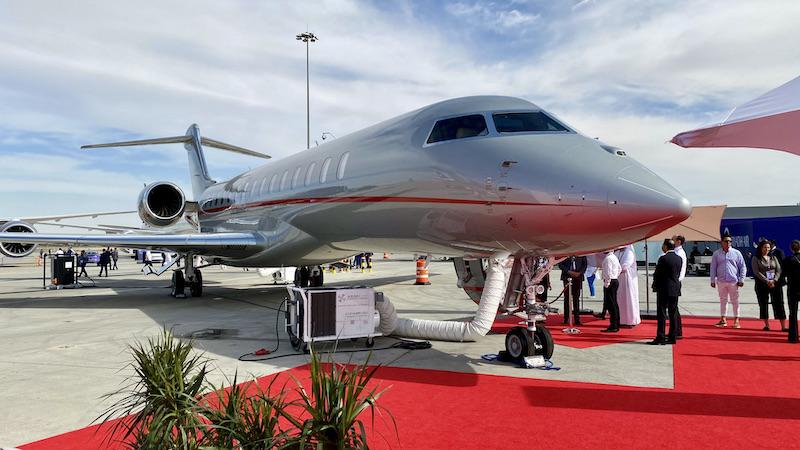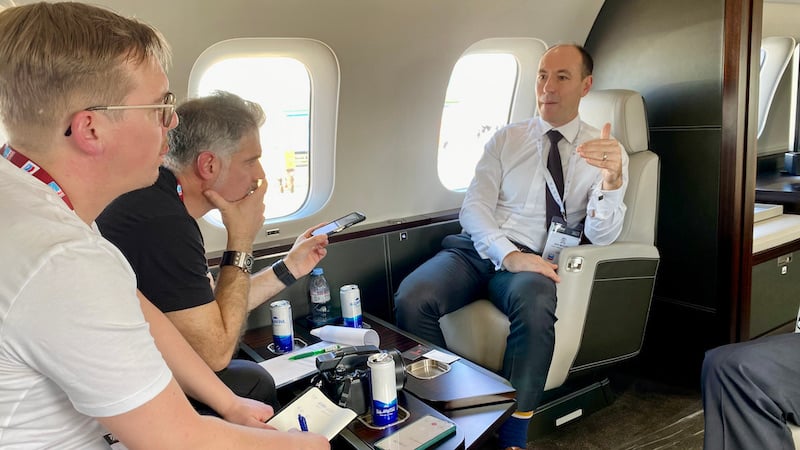
DUBAI—Private fleet operator VistaJet believes its asset-heavy, membership-driven business model has uplifted the company, even as private aviation experiences a slowdown after its COVID-era growth spurt.
Three years since the height of a pandemic that drove customers away from airlines to private aviation, Malta-based VistaJet continues to grow in the post-pandemic era, a time shaped by ongoing supply-chain constraints and new entrants to the market. The company says it has seen 74% growth in committed program hours since the third quarter of 2022. Its flight hours in the Middle East have increased by 22%.
Founded in 2004, VistaJet operates a floating fleet of 360 jets identified by their “silver with a red stripe” livery, including: short-range, light and midsize Cessna Citations; continental range, super midsize Cessna Citation Xs; Embraer Legacy 650s; and Bombardier Challenger 350s, and ultra-long-range, large-cabin Bombardier Globals.
A global operator, VistaJet entered the U.S. market in 2013. It has operations centers in Malta, Dubai, Hamburg, New York, Fort Lauderdale and Columbus, Ohio, plus several maintenance hubs.
“We own all our aircraft,” emphasizes Ian Moore, VistaJet's chief commercial officer. “No one does that—everyone sells fractions or manages other people’s aircraft. When we sell ours to our clientele, they are buying it without the asset exposure. It’s hugely important, a massive differentiator between us and any competitor, including aircraft ownership.”

VistaJet sells three-year, subscription-based memberships during which customers typically commit to flying 100-200 hours or more per year. Its clients include corporations and high-net-worth individuals. In addition to its owned fleet, the company provides access to 2,100 other aircraft flown by partner operators through its XO digital platform.
“We have a lot of U.S. corporations that have their own fleets and they’ll buy ours as well to supplement their fleet because they don’t want to go out of the U.S. with their [aircraft],” Moore says. “We’re a perfect solution for people who just started flying privately that are moving out of aircraft ownership or as a supplement to their own aircraft.”
Moore and Youssef Mouallem, VistaJet's executive vice president for international, spoke with reporters inside the cabin of one of VistaJet’s 18 flagship Bombardier Global 7500s, which it is displaying at the Dubai Airshow alongside an Embraer Legacy 650. The company, which has offices at the Dubai International Financial Center, finds the emirate attractive because of its geographic location and the ease of doing business here.
Dubai’s central location, serving as a connector to all major continents, and aircraft like the 7,700-nm-range Global 7500, give VistaJet the bona fides of a global operator. “We cover 96% of all countries,” Moore says. “The countries we don’t go to are either war-torn or don’t have a runway.”





